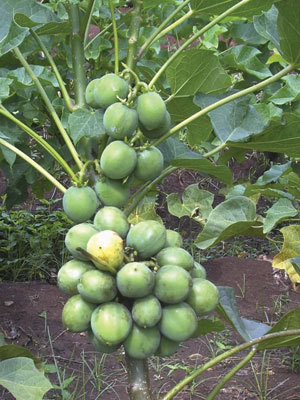Bio Diesal (Jatropha)
Category: Fencing Species
Tags: #agricultureseedstore, #beej, #BiodiversityOfIndia, #buyseeds, #buyvegetableseeds, #chemicalfreeseeds, #ClimateChange, #ClimateResilientSeeds, #ClimateSmartFarming, #desibeej, #desiseed, #Desiseeds, #FarmStore, #heirloomseed, #heirloomseeds, #homegarden, #homegardeningseeds, #hoogafarms, #hoogaseedkeepers, #MaadiThottamseeds, #naatuvidhai, #nativefoods, #nativevegetableseeds, #naturalfarming, #NaturalFoods, #naturalseeds, #NonGMOseeds, #openpollinatedseeds, #opseeds, #organicfarming, #organicseeds, #RooftopGardening, #RooftopGardenseeds, #SaveNativeSeeds, #SaveOurSeeds, #SaveSeeds, #SayNoToGMO, #seedconservation, #seeddiversity, #seedfarm, #seedkeeperscollective, #seedKeepersNetwork, #seedsavers, #seedsaving, #seedshop, #SeedsOfIndia, #seedstore, #tamilseedsavers, #Terracegardenseeds, #traditionalseed, #traditionalseeds, #traditionalvegetableseeds, #vegetablediversity, #Vegetableseed, #vegetableseeds, #Vidhaigaleperayudham, Agriculture, dubai small ridge giurd seeds, Dubai Small Round Ridge Gourd-Seeds, hooga forms, hooga seeds, hoogaseeds, native seeds, Ridge Gourd-Seeds, seeds, shop, shopping, Vidhai
Biodiesel from Jatropha refers to the production of biodiesel fuel from the oil extracted from the seeds of the Jatropha curcas plant. Jatropha is a tropical shrub or small tree that has gained attention for its potential as a source of sustainable biofuel.
Characteristics of Jatropha:
- Appearance: Jatropha curcas is a hardy plant that can grow in a variety of climates and soil types. It typically reaches heights of 3 to 5 meters (about 10 to 16 feet). The plant has broad, green leaves and produces small, greenish-yellow flowers. The seeds, which are the primary source of oil, are contained in oval-shaped fruits that turn yellow when ripe.
- Growth Conditions: Jatropha is well-suited to arid and semi-arid regions. It can thrive in poor, infertile soils and is drought-resistant, making it an attractive crop for marginal lands that are not suitable for food crops. It requires minimal water and maintenance once established.
- Toxicity: Jatropha seeds contain toxic compounds, which means they are not suitable for human or animal consumption. However, this toxicity also makes the plant resistant to pests and diseases.
Biodiesel Production:
- Oil Extraction: The seeds of the Jatropha plant contain about 30-40% oil, which can be extracted through mechanical pressing or solvent extraction. The extracted oil can then be processed into biodiesel through a chemical process known as transesterification.
- Transesterification: In this process, the Jatropha oil is mixed with an alcohol (usually methanol) and a catalyst (such as sodium hydroxide) to produce biodiesel and glycerin. The biodiesel is then separated, purified, and can be used as a fuel.
- Properties of Jatropha Biodiesel: Biodiesel produced from Jatropha oil has properties similar to those of conventional diesel fuel. It is biodegradable, non-toxic, and emits fewer pollutants compared to fossil diesel. Jatropha biodiesel has a high cetane number (which indicates good ignition quality) and a lower sulfur content.
Advantages of Jatropha Biodiesel:
- Sustainability: Jatropha can be grown on marginal lands, reducing competition with food crops. This makes it a sustainable option for biodiesel production without impacting food security.
- Environmental Benefits: Jatropha biodiesel is considered carbon-neutral because the CO2 released during combustion is offset by the CO2 absorbed by the plants during their growth. Additionally, it produces lower emissions of particulates, carbon monoxide, and sulfur oxides compared to fossil diesel.
- Economic Potential: Jatropha can provide economic opportunities for farmers in developing regions, especially in areas with poor soil conditions. It can be a source of income and energy independence in rural communities.
- Low Water and Fertilizer Requirements: Jatropha’s ability to grow in poor soils with minimal water and fertilizers makes it a low-input crop, further enhancing its sustainability.
Challenges:
- Toxicity: The toxic nature of Jatropha seeds and leaves poses challenges in handling and processing. Care must be taken to avoid accidental ingestion by humans or animals.
- Yield Variability: Jatropha yields can be inconsistent, depending on factors like soil quality, climate, and cultivation practices. Research is ongoing to develop high-yield, disease-resistant varieties.
- Economic Viability: While Jatropha biodiesel has potential, the economic viability of large-scale production depends on factors such as seed yield, oil extraction efficiency, and market conditions for biodiesel.
- Competition with Other Biofuels: Jatropha faces competition from other biofuel crops like soybeans, palm oil, and rapeseed, which may have higher oil yields or more established markets.
Current Status and Future Prospects:
- Research and Development: Efforts are ongoing to improve Jatropha’s yield and oil content through selective breeding and genetic modification. Researchers are also exploring ways to utilize the byproducts of Jatropha cultivation, such as using the seed cake (a byproduct of oil extraction) as fertilizer or for biogas production.
- Commercialization: While there have been large-scale plantations and biodiesel production projects using Jatropha, the crop has not yet reached its full potential. Issues like inconsistent yields and economic challenges have slowed widespread adoption.
- Environmental Considerations: As with any biofuel, the sustainability of Jatropha biodiesel depends on responsible land use and cultivation practices. Ensuring that Jatropha is grown on non-arable land without displacing food crops is crucial for its environmental benefits to be realized.
Jatropha offers a promising, sustainable source of biodiesel, particularly in regions where other crops might not thrive. However, further research and development are needed to overcome the challenges associated with its cultivation and production.
| Weight | 15 g |
|---|
Be the first to review “Bio Diesal (Jatropha)” Cancel reply
Related products
Red Yard Long Bean Gardening Seeds
₹120.00Original price was: ₹120.00.₹100.00Current price is: ₹100.00. -17%Clove Bean Green Gardening Seeds
₹120.00Original price was: ₹120.00.₹100.00Current price is: ₹100.00. -17%Purple Pole Bean Gardening Heirloom Seeds
₹120.00Original price was: ₹120.00.₹100.00Current price is: ₹100.00. -17%Climbing French Green Bean Seeds
₹99.00Original price was: ₹99.00.₹50.00Current price is: ₹50.00. -49%







Reviews
There are no reviews yet.